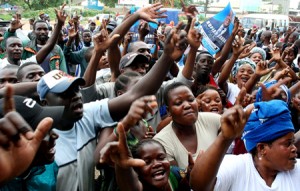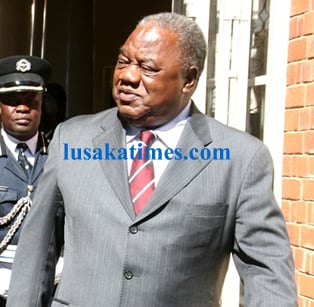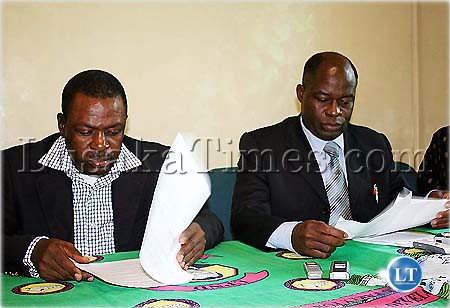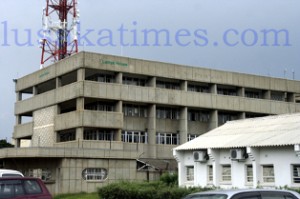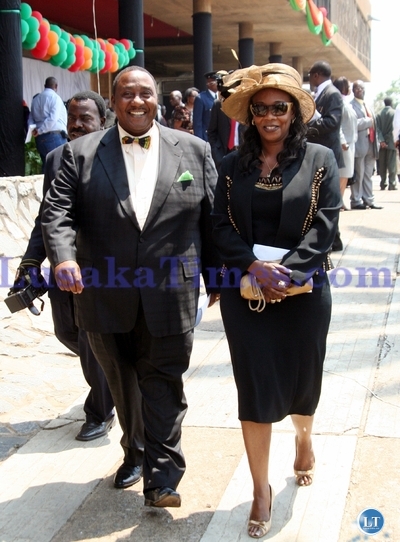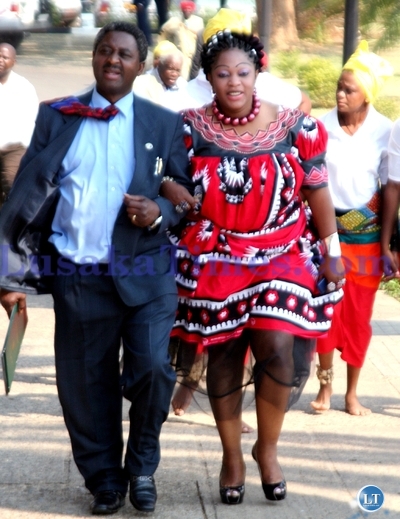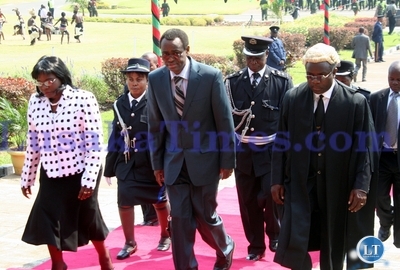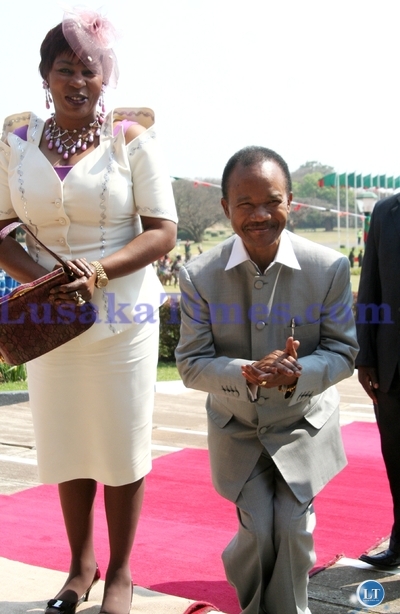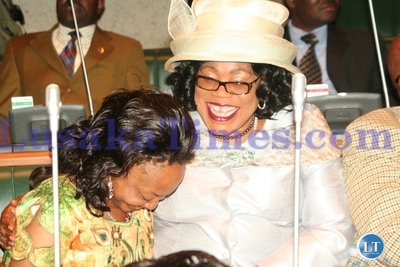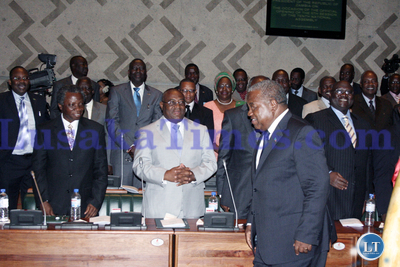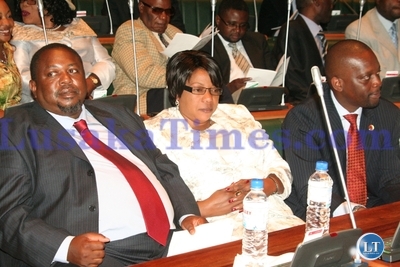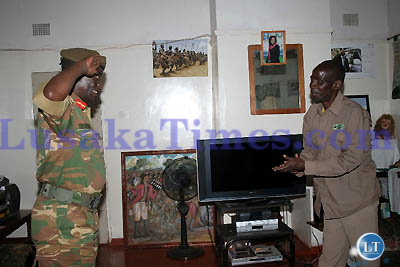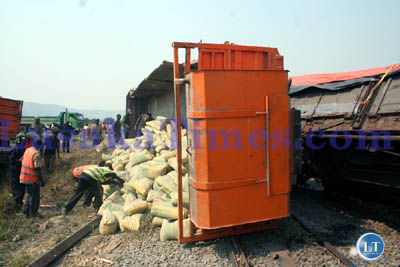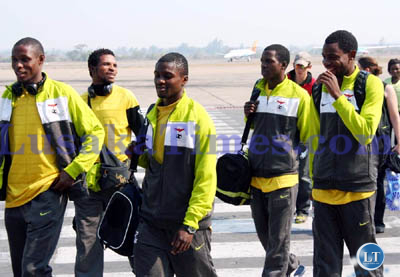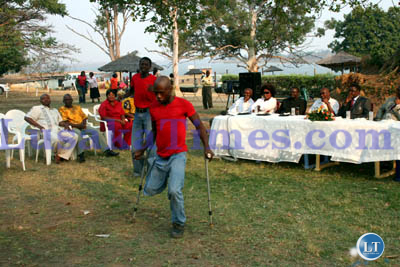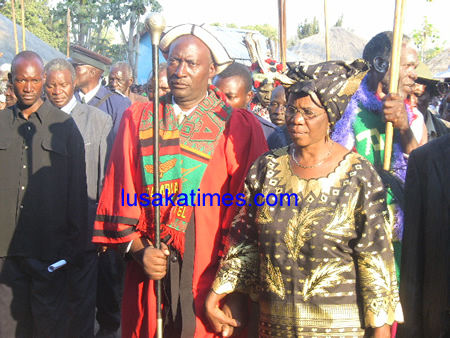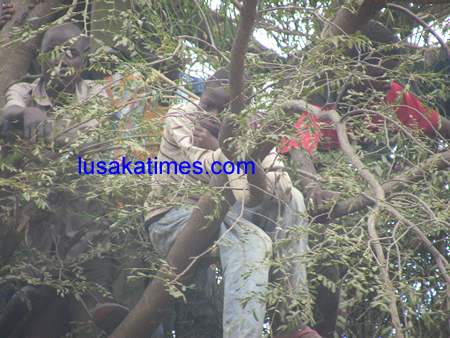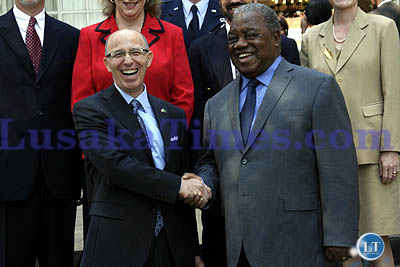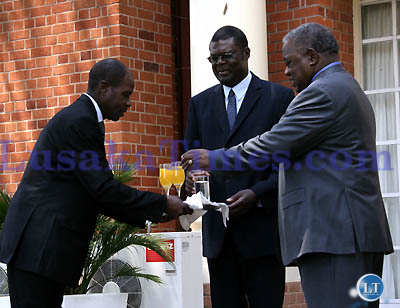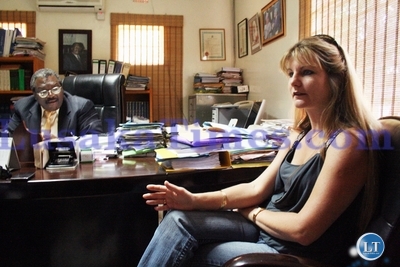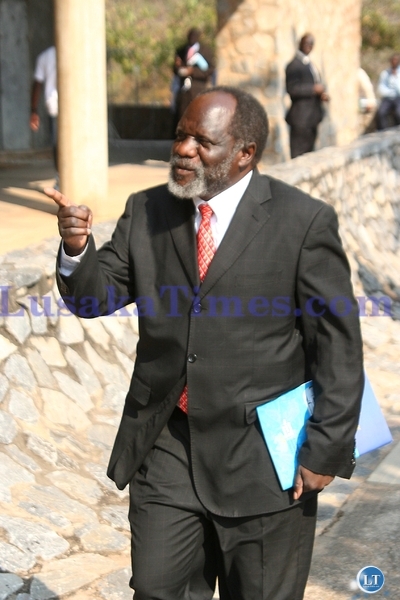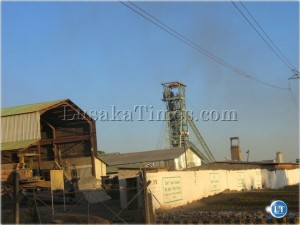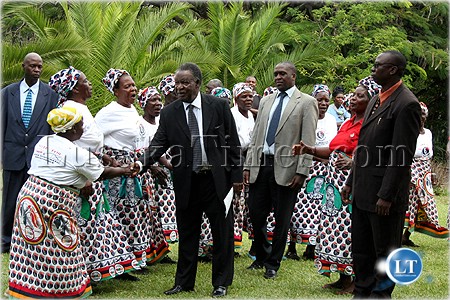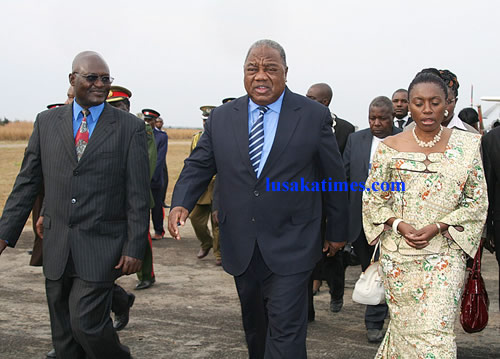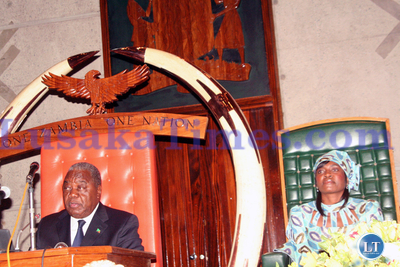
By Henry Kyambalesa
Compared to the speech President Rupiah Banda delivered in 2009 to the National Assembly, the recent one was more comprehensive and informative about government projects and programs, especially if the cited accomplishments in healthcare, education, vocational training, and transportation infrastructure are actually true. The speech could serve well as a persuasive appeal to voters to give the President and the Movement for Multi-party Democracy (MMD) another term of office.
However, I believe the President made a false claim in his introductory remarks that Zambia was reeling from the effects of the global financial and economic crisis when he addressed the National Assembly in 2009, and that the country has made a remarkable recovery from the crisis. [pullquote]the President needs to wean our beloved country from its current addiction to loans, and its dependence on foreign aid that is generally variable and unreliable in nature
[/pullquote]
There was no single sector of the Zambian economy that was adversely affected by the global financial and economic crisis. In fact, the unprecedented socio-economic problems which faced our country before the global financial and economic crisis have continued to haunt the country today. They include widespread unemployment, an educational system that casts nearly half of Grade 7 and Grade 9 students onto the streets every year, a healthcare system which cannot meet the basic needs of the majority of citizens, and a critical shortage of decent public housing nationwide.
Moreover, public infrastructure and services have continued to be deficient, civil servants are still not adequately compensated for their services, a lot of civil service retirees cannot get their hard-earned benefits, and, among a host of other socio-economic ills, crime is still rampant.
Besides, it would have been more appropriate for the President to thank and specifically mention the cooperating partners whose support of government projects and programs over the years has been indispensable – especially bilateral cooperating partners like China, Canada (CIDA), Denmark (DANIDA), France, Finland, Germany, Ireland, Japan (JICA), The Netherlands, Norway, Sweden (SIDA), USA (USAID), and the United Kingdom (DFID).
Also, it was disingenuous for the President not to have acknowledged the fact that most of the projects and programs he cited in his speech were actually initiated before he assumed office as President. For example, the Chipata-Mchinji railway project was initiated in 1982 as a joint venture involving Zambia, Malawi and Mozambique during the UNIP administration.
And the President needs to wean our beloved country from its current addiction to loans, and its dependence on foreign aid that is generally variable and unreliable in nature. He can do so by creating a smaller government that will largely live within its means – a government designed to perform existing and planned essential government functions with the 12 ministries I have suggested below, which is slightly larger than my initial proposal for 10 Cabinet-level portfolios.
Education, Training and Sport:
To be directly responsible for advising the President on, and spearheading the implementation of policies relating to, the following: general and tertiary education; vocational training; the training of teachers; adult literacy programs; matters concerning remuneration for teachers, lecturers, trainers, and researchers; and sporting programs in all educational and training institutions. And coordination of national programs and activities pertaining to education, training and sport with those of private institutions, as well as local governments nationwide.
Public Health and Sanitation:
To be directly responsible for advising the President on, and spearheading the implementation of policies relating to, the following: medical care, medical research, child health and development, family planning, disease control and prevention, food safety (local and imported foodstuff), drug safety (local and imported medicines), safety of herbal medicines, public health education, public health inspections, and matters concerning remuneration for public health personnel. And coordination of national public health programs and activities with those of private health care facilities and local governments.
Agriculture and Food Security:
To be directly responsible for advising the President on, and spearheading the implementation of policies relating to, the following: sustainable agricultural development and long-term food security – including the provision of agricultural incentives, support to agribusiness establishments and agricultural research centers, damming rivers, and construction of irrigation canals. And coordination of national programs and activities pertaining to agriculture and food security with those of the private sector and local governments.
Finance and Revenue:
To be directly responsible for advising the President on, and spearheading the implementation of policies relating to, the following: financial matters and monetary issues, including the stock / securities market; national debt management and external debt resolution; management of all state-owned enterprises; administration, dispensation and recovery of loans granted to students and trainees admitted to institutions of higher learning, and management of a government scholarship fund through a new Loans and Scholarships Committee; and revenue generation through taxation, customs and excise duties, service fees / charges, superintendence over the National Road Fund Agency (NRFA), and provision of postal services through the Zambia Postal Services Corporation (ZAMPOST).
Commerce and Industry:
To be directly responsible for advising the President on, and spearheading the implementation of policies relating to, the following: trade and industrialization strategy, tourism, mining, the energy sector, business and investment promotion, regulation of imports and exports, trade relations, registration of foreign companies, research and development (R&D) support for local manufacturers, and superintendence over the operations of the Zambia Development Agency (ZDA). And coordination of national commercial and industrial programs and activities with those of local governments.
National Defence and Security:
To be directly responsible for advising the President on, and spearheading the implementation of policies relating to, the following: enhancement of national defence and security — including the issues of training, equipment and matters concerning remuneration and housing for defence and security personnel.
Public Safety and Security:
To be directly responsible for advising the President on, and spearheading the implementation of policies relating to, the following: the protection of life and property; the preservation of law and order; the detection and prevention of crime; and cooperation with other security organs of the government and local communities in dealing with public safety and security. And coordination of these functions with related functions of private security companies and local governments.
Works, Supply and Transport:
To be directly responsible for advising the President on, and spearheading the implementation of policies relating to, the following: utilization and management of State-owned pieces of land; provision and maintenance of vital infrastructure nationwide – including an efficient, inter-modal and safe network of ground and air transportation; development of malleable stretches of the Zambezi, Kafue, Luangwa and other sizable perennial rivers for water transportation – including the proposed Shire-Zambezi Waterway involving Zambia, Malawi and Mozambique; and construction, renovation and maintenance of government facilities and pieces of property nationwide. And coordination of these functions with the related functions of local governments.
Lands and Public Housing:
To be directly responsible for advising the President on, and spearheading the implementation of policies relating to, the following: delineation, administration and development of state and customary lands; issuance of title deeds; resolution of land-related disputes; provision of consent in the acquisition, transfer and leasing of lands; implementation of home ownership schemes for all civil servants; provision of low-cost rental housing units for low-income families; management of a home-ownership scheme for low-income families to be financed through low interest mortgages; stipulation of fair eligibility requirements to be met by applicants for low-income rental public housing; generation of rules of occupancy, and determination of rental and other related charges; and derivation of a grievance procedure and guidelines for resolving any and all the issues and matters relating to non-compliance with rules of occupancy.
Culture and Community Services:
To be directly responsible for advising the President on, and spearheading the implementation of policies relating to, the following: preservation of the country’s national treasures, including national monuments, museums, historical sites, cherished traditional and cultural values; promotion of traditional music and culture-related crafts; House of Chiefs and traditional leaders; national unity and patriotism; religious harmony; national ceremonies and festivals; and issues relating to women, children, disabled citizens, and retirees and the aged. And coordination of national cultural and community programs and activities with those of local governments.
Justice, Prisons and Immigration:
To be directly responsible for advising the President on, and spearheading the implementation of policies relating to, the following: legal matters (including representation of the Government), protection of citizens’ rights and freedoms, administration of the Zambia Prison Service, legal aid, title deeds, national registration, passports and immigration, citizenship and naturalization, work permits, treaties and agreements with other countries, intellectual property rights (patents, copyrights and trademarks), and remuneration for judicial personnel and support staff.
Foreign Affairs:
To be directly responsible for advising the President on, and spearheading the implementation of policies relating to, the following: foreign political relations, including conflict resolution and peace-keeping efforts; consular affairs and services; profiles of foreign countries; services and vital information to Zambians in, or traveling to, foreign countries; publicizing Zambian society abroad; and management of a program which shall confer rare and special Zambian Residency status upon a selected number of distinguished foreigners.
The foregoing functions need to be performed by technocrats, not figureheads! And we should guard against establishing new government ministries for the purpose of creating jobs for friends, such as the splitting of the Ministry of Agriculture into 2 ministries. It would have made a bit of sense if this was a “line” rather than a “staff” ministry. The United States, for example, has only 1 solid Federal Department of Agriculture – a country with around 310 million people and a much, much larger agricultural sector.
In addition to the smaller number of Cabinet Ministers, there is a need to abolish the positions of Deputy Minister and District Commissioner, as well as reduce the number of Zambia’s foreign embassies by having clusters of countries to be served by single embassies. Further, we should not entertain any calls for the creation of the position of Prime Minister.
And there is a need to go through government expenditures line by line, program by program, agency by agency, department by department, and ministry by ministry in order to eliminate unnecessary application of public funds.
Civil servants in ministries to be abolished or merged should be encouraged to seek early retirement with full benefits. Professional and skilled civil servants should be re-deployed in the new government ministries and agencies.


